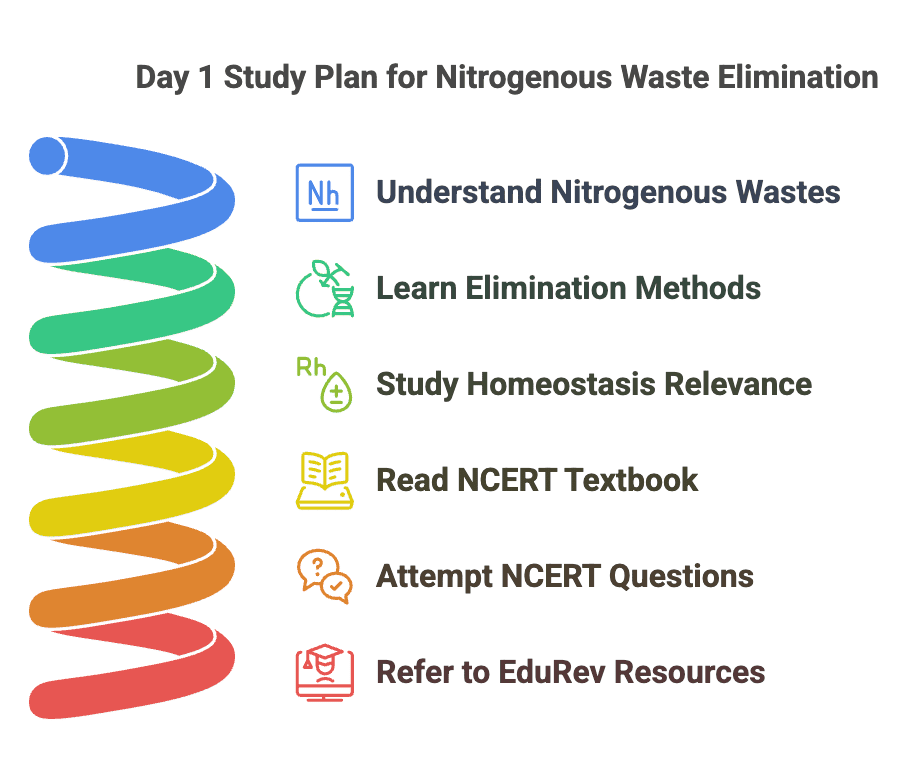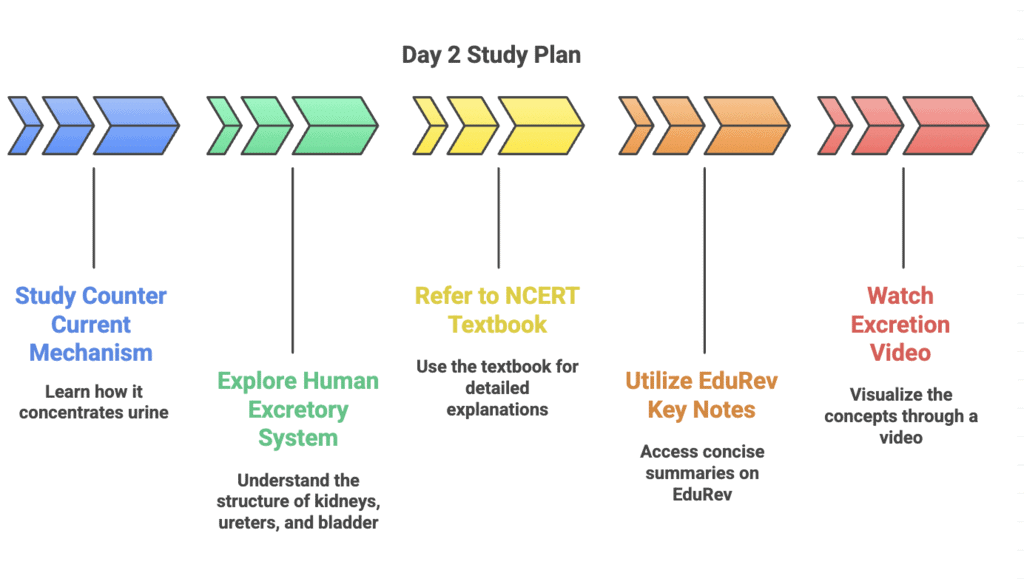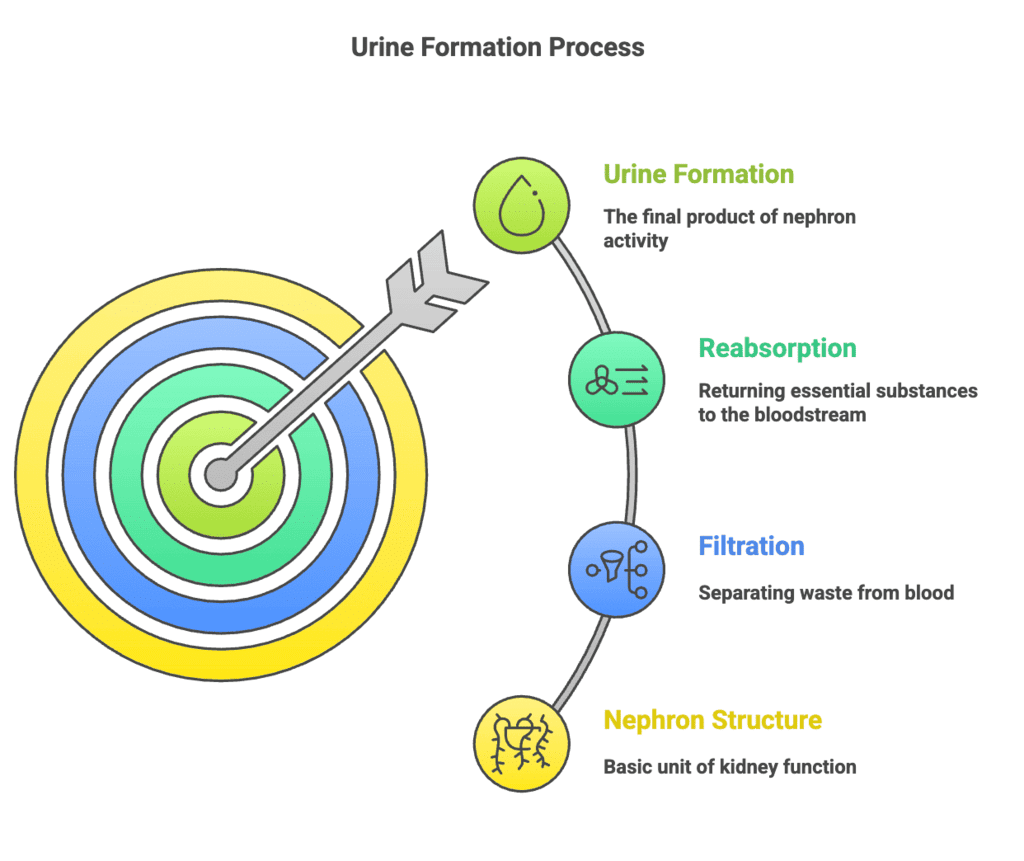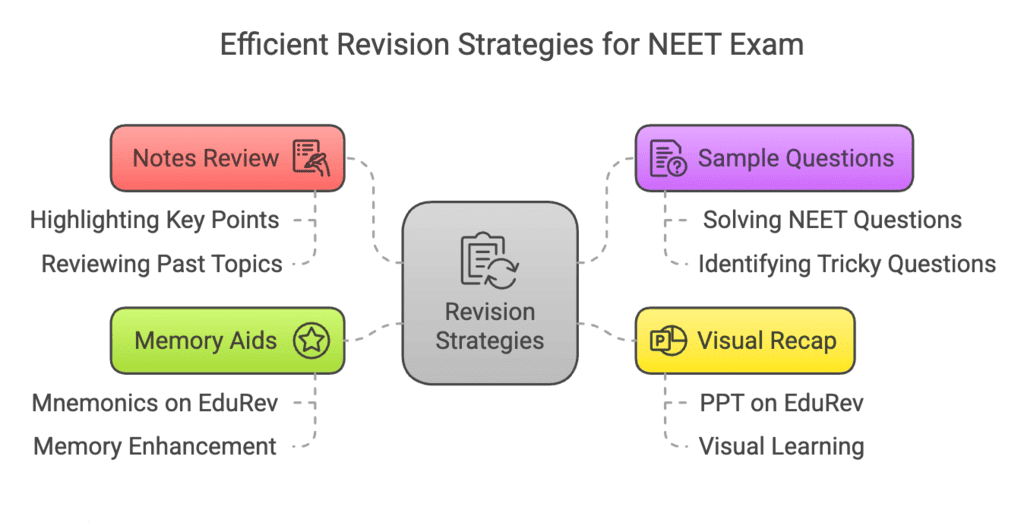4 Days Study Plan: Excretory Products and their Elimination | Biology Class 11 - NEET PDF Download
Let's explore the Biology chapter called "Excretory Products and their Elimination" and how it's important for the NEET exam. By studying the past years NEET questions (from 2016 to 2025), we can see that this chapter is really important in the exam. If you want to score well in NEET, you need to understand the concepts in this chapter.
Meeting Your Timetable Goals with EduRev!
The study plan for this chapter offers you a schedule to manage your time effectively for learning and practicing the chapter thoroughly. By following this plan diligently, you'll be well-prepared to tackle even the most challenging questions asked in NEET related to each chapter. EduRev makes your preparation easier and saves you time by providing comprehensive resources for each topic. These resources include chapter notes, videos, and tests for every topic and chapter.
To access these valuable resources, including documents, videos, and tests, simply click here.
Chapter Overview
This chapter delves into various aspects of excretion, focusing on the following topics:
Elimination: Nitrogenous Wastes: Understanding the different forms of nitrogenous wastes produced in organisms.
Counter Current Mechanism: Exploring the mechanism used in some excretory systems to concentrate urine efficiently.
Human Excretory System & Structure of Kidneys: Examining the human excretory system, including the kidneys, ureters, and bladder. ( Learn more )
Nephrons: Investigating the functional units of the kidney, nephrons, and their role in urine formation.
Mechanism: Urine Formation: Delving into the intricate process of urine formation within nephrons.
Recommended Tip: Review the past year's questions related to this chapter. This will provide you with insights into the types of questions typically included in the exam and the level of detail you need to study. Getting a sneak peek ahead of time can be a game-changer!
Day 1: Elimination of Nitrogenous Wastes
What to Cover:
- Understand the concept of nitrogenous wastes and their types (ammonia, urea, and uric acid).
- Learn how different organisms eliminate these wastes.
- Study the relevance of nitrogenous waste elimination in maintaining homeostasis.
Study Tips:
- Read the corresponding section in your NCERT Biology Class 11 textbook.
- Attempt questions related to this topic in the NCERT textbook.
- Refer to the NCERT Textbook and NCERT Solutions on EduRev for in-depth understanding.

Day 2: Counter Current Mechanism and Human Excretory System
What to Cover:
- Study the counter current mechanism and how it helps in urine concentration.
- Explore the structure of the human excretory system, including the kidneys, ureters, and bladder.
Study Tips:
- Refer to your NCERT textbook for detailed explanations.
- Utilize the Key Notes on EduRev for concise summaries.
- Watch the Video on excretion in animals to visualize the concepts.

Day 3: Nephrons and Mechanism of Urine Formation
What to Cover:
- Explore the structure and functions of nephrons in detail.
- Understand the step-by-step mechanism of urine formation within nephrons.
Study Tips:
- Read the relevant sections in your NCERT textbook thoroughly.
- Use the Mindmap on EduRev to visualize and organize your knowledge.
- Practice with the Test to assess your understanding.

Day 4: Revision
On this day, revise all the topics you've covered in the past three days. Here's how to efficiently revise:
- Go through your notes, highlighting key points.
- Solve sample questions related to the chapter.
- Review the PPT on EduRev for a visual recap.
- Use the provided Mnemonics to aid your memory.

In the NEET exam, you'll encounter questions like the ones mentioned in below links. The best way to review and get better at the topics is to solve the questions. If you find a question tricky, it's a sign that you might not fully grasp that topic. In that case, it's a good idea to revisit the topic and study it again and solve more and more questions related to it.
- NEET Previous Year Questions (2016-23): Excretory Products & their Elimination
- NCERT Based Tests
- Key Notes: Excretory Products & their Elimination
- Important Diagrams: Excretory Products and their Elimination
- Topic Wise tests
- PPT: Excretory Products & their Elimination
Remember, for additional practice and resources, you can explore the NEET Exam section on EduRev, which offers valuable insights and materials related to NEET preparation.
With this organized study plan and the resources available on EduRev, you'll be well-prepared to tackle the "Excretory Products and their Elimination" chapter effectively and succeed in the NEET exam. Happy studying!
Important Links:
- NEET Exam
- NEET Previous Year Questions (2016-2025): Excretory Products and their Elimination
- Mindmap: Excretory Products and their Elimination
- Key Notes: Excretory Products & their Elimination
- NCERT Textbook: Excretory Products and their Elimination
- NCERT Solutions: Excretory Products and their Elimination
- Mnemonics: Excretory Products and their Elimination
- PPT: Excretory Products and their Elimination
- Video: Excretion in Animals
- Test: Organs Involved in Excretion & Disorders of Excretory System
- Excretory Products and their Elimination
|
150 videos|399 docs|136 tests
|
FAQs on 4 Days Study Plan: Excretory Products and their Elimination - Biology Class 11 - NEET
| 1. What are nitrogenous wastes and why do they need to be eliminated from the body? |  |
| 2. What is the counter current mechanism in the excretory system and how does it aid in urine formation? |  |
| 3. How does the human excretory system work to eliminate waste products from the body? |  |
| 4. What are nephrons and what is their role in urine formation? |  |
| 5. What is the mechanism of urine formation in the nephrons of the human excretory system? |  |





















